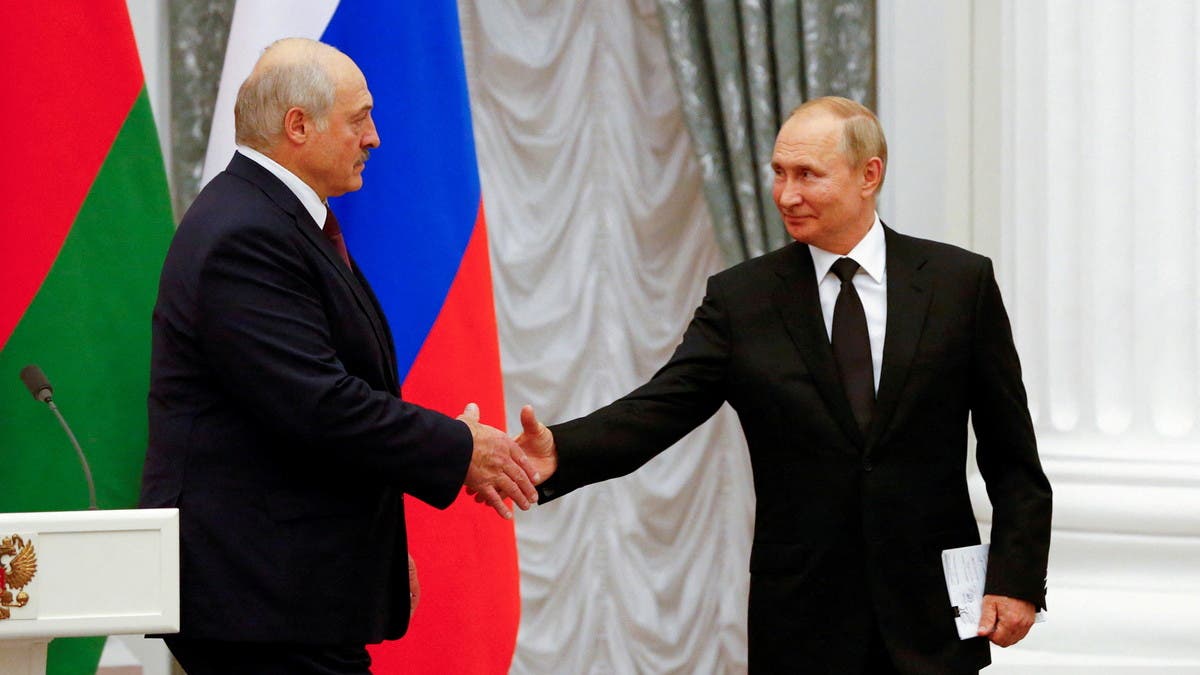Behind his latest outbursts against NATO and doomsday warnings to the West, there are tentative signs that Russian President Vladimir Putin is keen to avoid an escalation of the Ukraine crisis and seek some form of accommodation with the West.
In the early hours of Tuesday, Putin warned for the second time in a week that European countries would automatically be drawn into a war with Russia in which “there will be no winners” if Ukraine joined NATO and then tried to recapture the Crimean peninsula that Russia seized from it in 2014.
For the latest headlines, follow our Google News channel online or via the app.
But at the Kremlin news conference that ended after 1 am, he also said dialogue was not over, that some proposals from the United States and NATO were worth discussing, and that Russia would do “everything to find compromises that suit everyone.”
After more than three months of high tension sparked by Putin’s build-up of more than 100,000 troops near Ukraine’s borders, his intentions remain opaque. The White House said at the weekend he could order an attack within days or weeks.
Yet two Moscow-based analysts who specialize in deciphering the signals from the Kremlin said Putin’s late-night comments after hours of talks with French President Emmanuel Macron suggested that he was serious about negotiating.
“Of course he sticks to his positions but I’ve not got the impression that he’s in the mood for escalation,” said Andrey Kortunov, head of the Russian International Affairs Council. “Probably you wouldn’t speak to an opponent for seven hours if you wanted just to lecture him and close the file.”
Putin has gathered a force of more than 100,000 Russian troops near the border with Ukraine as he presses the core demands that he restated on Tuesday: no more enlargement of NATO, no missile deployments near Russia’s borders and a scaling back of NATO’s military infrastructure in Europe to 1997 levels.
He complained that the United States and NATO had “bypassed” these in the formal responses they delivered to Moscow on Jan. 26, which contained “political clichés and proposals on some secondary issues.”
But the US response – leaked last week to Spanish newspaper El Pais – included offers to address specific Russian concerns. It said Washington was ready to discuss a reciprocal deal on not deploying missiles and combat forces in Ukraine, and to negotiate a “transparency mechanism” to confirm that the United States has not placed Tomahawk cruise missiles at missile defense sites in Poland and Romania.
Kortunov said entering an arms control dialogue with Washington could therefore be in Putin’s interest.
“In a way that can meet his demand because if there are serious negotiations on arms control in Europe, these negotiations can prevent NATO infrastructure from moving closer to Russian borders,” said Kortunov.
“If this is the center of his concerns, he can try to resolve the problem in this way. But of course he’s not likely to drop his prime demand completely.”
Minsk deal
Fyodor Lukyanov, editor-in-chief of the Russia in Global Affairs journal, said that if Moscow could not get the West to promise not to admit Ukraine into NATO, it could seek to achieve the same outcome through a revived version of the 2014 and 2015 Minsk peace agreements.
Putin stressed after speaking with Macron that there was no alternative to the accords, which would grant special constitutional status to two east Ukrainian regions where Russian-backed separatists have been fighting the Ukrainian army since 2014.
Depending how that special status was defined, it could stymie Ukraine’s NATO ambitions, especially if the two pro-Russian regions were left free to conclude their own security arrangements with Moscow – something Kyiv would strongly resist.
Lukyanov acknowledged it would take serious Western pressure for Ukraine to drop its refusal to talk to the separatists and sign up to autonomy for the eastern regions.
But he said it was possible that “the contours of (a) new deal might emerge” from some form of settlement of the conflict, combined with a statement on new security arrangements in Europe along the lines that Macron has proposed, and new arms control measures of the kind that Washington is ready to discuss.
“I’m optimistic but at the same time very cautious,” he said.
Read more: Germany eyes new LNC terminals as alternative to Russian gas

 World3 years ago
World3 years ago
 World3 years ago
World3 years ago
 Business11 months ago
Business11 months ago
 Entertainment7 years ago
Entertainment7 years ago
 World7 years ago
World7 years ago
 Entertainment7 years ago
Entertainment7 years ago






